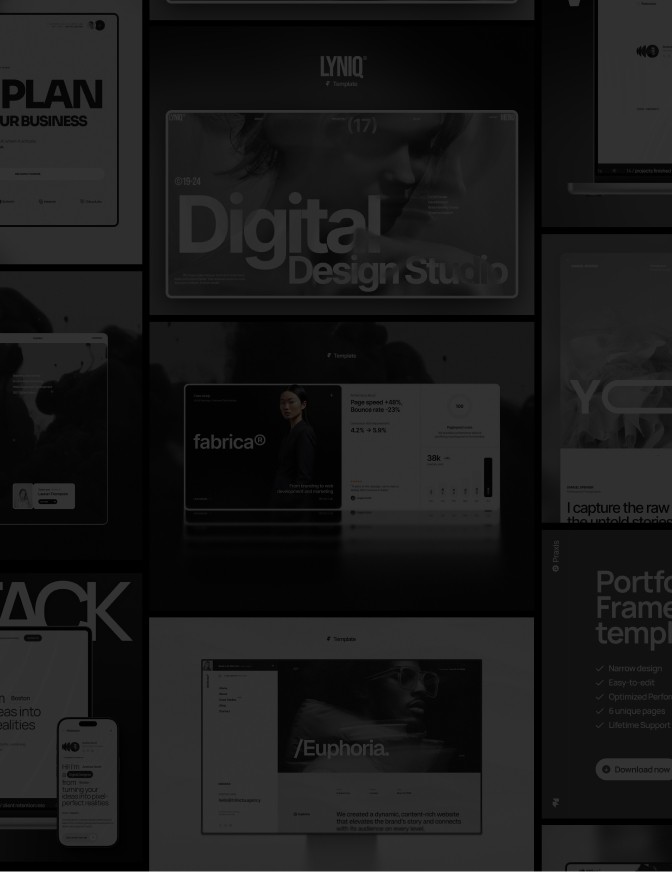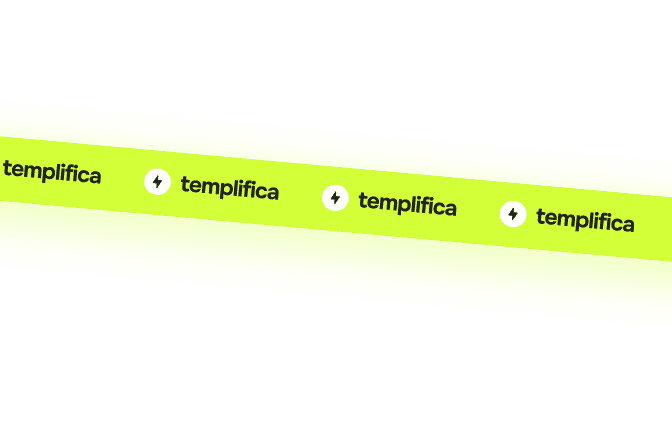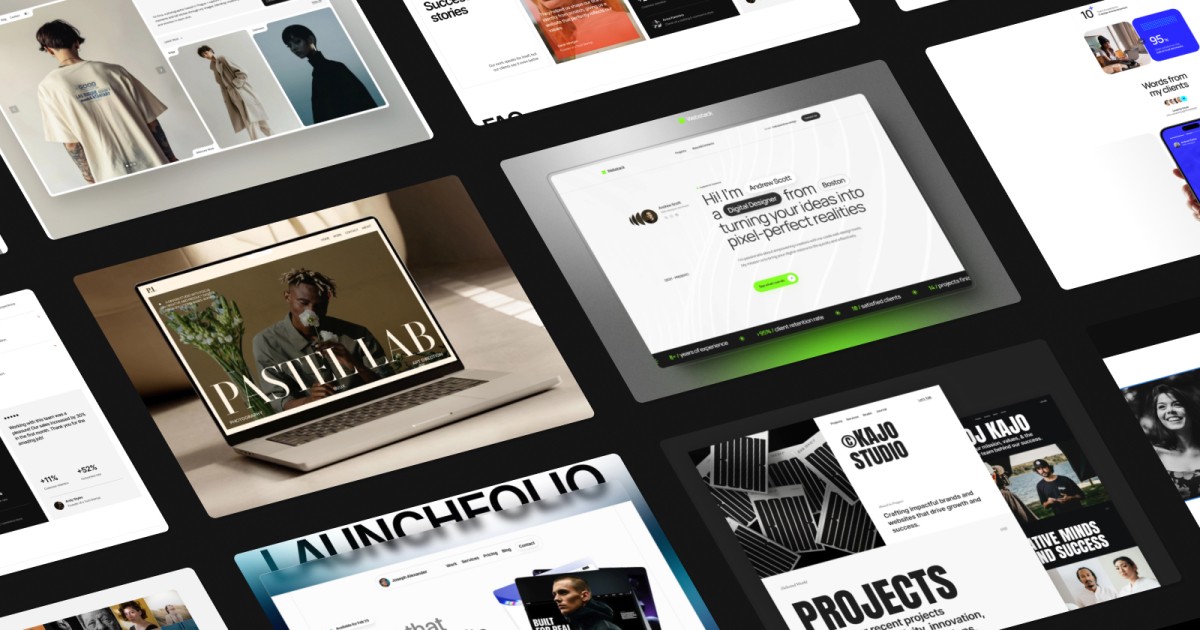Dramatic improvement has been achieved through a revolutionary application: AI-based website design templates. In fact, templates no longer represent simply pre-designed elements, they are cognitive based platforms using artificial intelligence to develop unique experiences for each user in real time.
This evolution signals the end of the websites being "one-size-fits-all" and the transition to personalized digital experiences that engage users, improve conversion rates, and build customer loyalty.
From static design to adaptive
According to a broadcast model, traditional web design assumes that all visitors to the website see duplicate content, which is true, regardless of their ideals, experience, and actions on the site. However, web design patterns primarily based on artificial intelligence are transferring us to a new model. These acts as intelligent systems through the processing of immense amounts contextual information as the user comes to a site; parameters like geographic location, device type, direction of movement, time of day, and real-time user behavior on the site (e.g., scroll depth, cursor movement). Once AI has processed these signals, hypotheses of intent, and possibilities your content can be personalized to the user's behavioral needs.
This allows the template to modulate or dynamically change its interface, start to replace existing or new/irrelevant content with content that aligns more personally with the user even before the user decides to click a button to initiate navigation. The template is not passive anymore, it becomes a co-creator of a navigation path.
Real-time personalization mechanism
The power of these templates is that they can do personalization at machine speed. For example, suppose a visitor came to the website from a social media campaign about advertising a premium product. AI website design templates recognize this link source and prioritize the "Heroes" section about this product, all the reviews relating demographics similar to the user, and limited-time offers related to the campaign advertising campaign. Conversely, if the user came from a routine search for "comparison guides," the AI system would recognize this as well and interactively immediately present wherever the website has captured information about the functions or perhaps create an interactive tool immediately.
The real-time dialogue does not cease at the behavioral adjustments or path profiling. Integrating an artificial intelligence developed website can even modify headlines, call to actions, or even the images based on the user’s profile. For example, a returning visitor may see a message like "Welcome — are you ready to continue?" or even pre-fill to an offer from the previous visit. This specific approach or customized and personalized tagging of the previous experience a simple text loop perceivably ties the user back to the experience framework and relates that same user journey into subsequent personalized experiences the next time. The sophistication and immediacy of this design framework, which is simple to develop using professional intends of website design template and professionally structured content, links users in ways that a static website or design can continually and immediately comprehend relativity.
For businesses exploring this direction, starting with a well-structured template can save time. Effica is a Framer-based website template built to support adaptive design and can be extended with AI-driven personalization features.
Data-driven design solutions and predictable interactions
Advanced web design patterns using artificial intelligence do not only respond to immediacy signals but also use intelligent analytics to predict user needs. The combining and analysis of interaction data of thousands and thousands of interactions, an AI can detect patterns, and trends, that are invisible to the human eye. It will predict specific user segments throughout the content groups included in a website has the highest conversion rates and perhaps which elements throughout the page are causing friction or reluctance to access content.
This intelligent methodology allows self-optimizing attributes and features of the template. It is able to test alternative layouts, headings, or button colors quickly and easily, optimizes those that work and predicts patterns removes those that do not provide similar effectiveness or outcomes. This is a fundamental transition away from what was once perceived as a stationary website into a living organism, a learning organism that increases efficiency each time a user interacts. For business that equals an increase return on every investment of the digital presence. For users they get an intuitive interface built to ease their frustrations in finding what they are looking for or interested in increasing their satisfaction.
Building Trust through Transparency
The primary objective of an AI-powered website is to support users in building trust. The best designed templates for an AI-powered website is to establish transparency and support for personalization. This requires clear information in exchange for data, showing users how personalization can improve their experience, and straightforward controls that allow opting out. The purpose is to build a value exchange that makes the user feel like they are being helped, not being viewed. Ethically and transparently, this intelligent adaptation builds relationships with the brand and shows the organization cares about the user's time and interaction.
Indeed, AI website design patterns will be the future of digital interactions. They are the engines behind websites that see, sense, and respond to user behavior, providing an individual user experience rather than a single or a few templates for general audiences. This is not something that will occur in the distant future; this is a new competitive requirement for any business owner that wants to engage their audience in a timely manner. Essentially, as these templates are used, companies move from a website to an intelligent growth platform that learns, changes, and adapts to conditions.
AI Website Design Template - FAQ
How do I showcase AI features and capabilities effectively?
The template includes interactive demo sections, feature comparison tables, and AI capability showcases. Add live API demonstrations, before/after examples of AI processing, and interactive widgets that let visitors test your AI functionality. Use visual elements like data flow diagrams, neural network animations, and real-time processing indicators to make AI concepts accessible and engaging.
Can I integrate AI tools and APIs into the template?
Yes, the template is designed for AI integration with placeholder sections for chatbots, image processing, and data analysis tools. Connect to APIs like OpenAI, Google AI, or custom machine learning models. The template includes loading states, progress indicators, and result display components perfect for AI processing workflows and real-time interactions.
How do I explain complex AI concepts to non-technical visitors?
The template includes dedicated sections for simplified explanations, interactive tutorials, and use case examples. Use the built-in infographic layouts, step-by-step process flows, and FAQ sections to break down AI concepts. Include video backgrounds showing AI in action, customer success stories, and industry-specific use cases to make AI benefits tangible and understandable.
What essential pages should an AI website include?
Key pages included in the template:
AI Demo/Playground: Interactive testing environment for visitors
Use Cases: Industry-specific applications and success stories
API Documentation: Developer resources and integration guides
Pricing/Plans: AI service tiers, usage limits, and enterprise options
About/Team: AI expertise, research background, and company credentials
Ethics/Safety: AI transparency, bias mitigation, and responsible AI practices
Resources/Blog: AI insights, tutorials, and industry updates











